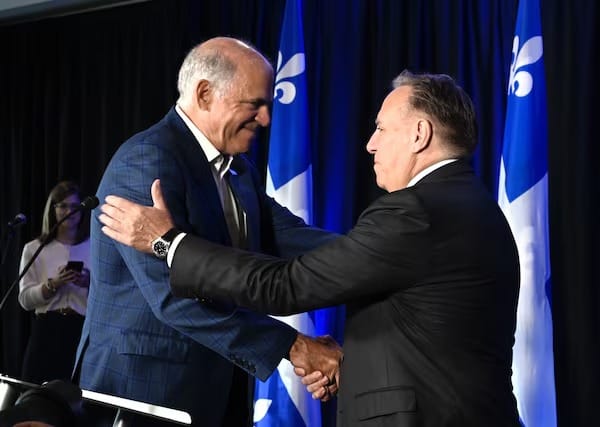After resignation of high-profile minister, Legault government heads into fall session
As the fall session of Quebec’s legislature kicks off this week, Premier François Legault will have to fend off claims his government is past its best-before date, even as he works to shepherd a pivotal energy bill into law.

As the fall session of Quebec’s legislature begins this week, Premier François Legault faces increasing pressure, with critics suggesting his government may be losing momentum. At the same time, Legault is pushing forward with a crucial energy bill.
Legault’s right-leaning Coalition Avenir Québec (CAQ) has seen its popularity slip since last fall, grappling with controversies and setbacks. A significant blow came recently with the sudden resignation of Pierre Fitzgibbon, a key minister, who cited waning enthusiasm for the role.
This marks the third departure from Legault’s caucus in just over a year, leading opposition leaders to claim that his government, now two years into its second majority term, may be nearing the end of its effectiveness.
However, following a caucus retreat in Rimouski, Que., Legault dismissed suggestions that his leadership is in jeopardy, stating, "I have enough experience to know that in just about every government there are departures for all kinds of reasons."
Fitzgibbon, who was responsible for key files as minister of energy and economy, had recently introduced a major energy bill. This bill proposes significant changes to Hydro-Québec’s operations and the setting of electricity rates, as part of efforts to double the utility’s capacity and achieve carbon neutrality by 2050.
The energy bill will dominate the fall session, with David Heurtel, political analyst and former Liberal minister, noting that it "significantly transforms the mission of Hydro-Québec and Quebec’s entire energy outlook for years and decades to come."
Although Fitzgibbon had predicted “significant increases” in electricity rates over the next five to 10 years, Legault maintains that residential rates will not rise more than three percent annually while he is premier, though commercial rates may increase. The debate over energy costs is likely to spark broader discussions about Quebec’s energy future, especially since the province boasts some of the lowest electricity rates in North America.
Christine Fréchette, newly appointed as economy and energy minister, will now take over Fitzgibbon’s role in navigating the bill through the legislature. Opposition Liberal member Marwah Rizqy has called for the government to withdraw the bill, citing Fréchette's recent appointment.
Legault has also identified immigration and health care as key areas of focus this fall. He has urged the federal government to reduce the number of non-permanent residents in Quebec, blaming the influx for the province’s housing crisis and strain on public services. He plans to introduce legislation aimed at limiting the number of international students.
Meanwhile, the CAQ government faces mounting pressure to resolve ongoing negotiations with the union representing most of Quebec’s nurses, who have been without a collective agreement for 500 days. Nurses are set to refuse overtime work starting September 19 if a deal isn’t reached.
Legault’s political opponents, including the Parti Québécois (PQ) and the Liberals, are seeking to capitalize on Fitzgibbon’s departure. PQ Leader Paul St-Pierre Plamondon, sensing an opportunity to reclaim the Terrebonne riding, where Legault will need to call a byelection, is urging a quick election call. The PQ, which has led in the polls despite having only four elected members, faces the challenge of maintaining momentum until the next general election in October 2026.
The Quebec Liberals, trailing in the polls, are looking to a leadership contest for renewal. With Federal Transport Minister Pablo Rodriguez expected to enter the race, and other notable figures like former Montreal mayor Denis Coderre vying for leadership, the party hopes for a revival ahead of the 2026 election.
Québec Solidaire, another party facing internal challenges, is also navigating a period of change. Gabriel Nadeau-Dubois, one of the party’s spokespersons, has been pushing for modernization. The party will elect its next female co-leader in November.
As the legislature resumes, its main chamber, the Salon bleu, will remain closed for renovations, with members temporarily meeting in the Salon rouge.





